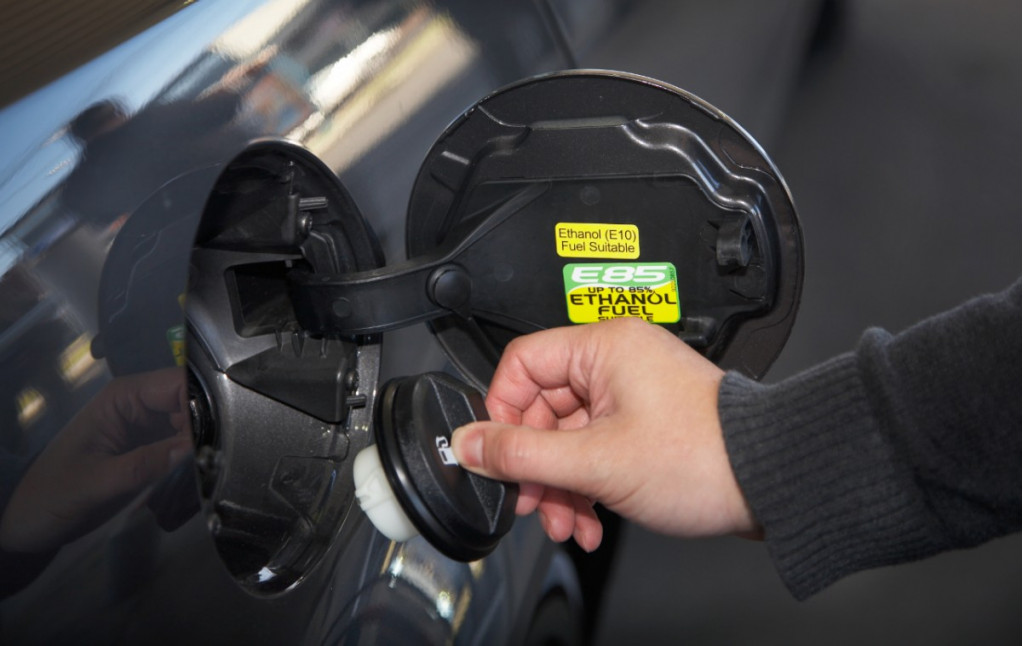Drivers in the Midwest could soon be paying more for fuel under an ethanol-blending policy supported by political interests in the region, according to a new study.
First spotted by Transport Topics, the study was conducted by Baker & O’Brien Inc. for the American Fuel & Petrochemical Manufacturers, a U.S. fossil-fuel refining trade group. It predicts that Midwestern motorists will pay 8 cents to 12 cents extra per gallon under a push to get more E15—a blend of 15% ethanol and 85% gasoline—to more gas stations.
The issue is that getting more ethanol out to stations will require new equipment for distribution, storage, and production, according to the study, as well as pumping. These costly retrofits have kept E15 from getting to many stations.
Big square baler harvesting wheat straw for production of cellulosic ethanol
This debate was triggered by a group of Midwestern governors moving to eliminate a partial air-pollution waiver for E10 gasoline (the blend sold by default at most gas stations nationwide). This would put E10 and E15 on the same regulatory footing in this states, potentially encouraging higher sales of the higher-ethanol blend, Transport Topics noted.
That in turn would require costly changes to infrastructure, which would likely get passed on to customers in the form of higher gas prices. While increased gas prices are a reliable stressor for politicians on a national level, in the Midwest they’re countered by the interests of the agricultural lobby, representing farmers that grow the corn used in ethanol.
This comes as ethanol interests are once again petitioning the Biden administration to waive a seasonal ban on higher ethanol blends due to smog-forming pollution. Iowa lawmakers are among the elected officials backing the petition, local newspaper The Gazette reported.

Ethanol warning at fuel filler
That’s something the Trump administration did in 2019 and 2020, in a move to woo the agriculture vote after many previous move countering the industry. The Biden administration did the same in 2022.
The Biden administration has seemingly chosen ethanol interests over food, but given the high rate of inflation and concern over the cost of pantry items, perhaps the administration will reconsider. Recent peer-reviewed research, taking more of a big-picture view, also suggests ethanol might be worse for global warming than gasoline.
Debate over the amount of ethanol blended with the national gasoline supply has also spilled over into discussions of EV sales, with corn farmers concerned that California’s EV push will sink ethanol sales, and EV advocates saying new rules broadening use of biofuels will delay EV adoption. The ethanol lobby also opposes the Biden administration’s stricter emissions standards, which could help boost EV sales. So the motives here are green—just a different kind of green.
Read the full article here



